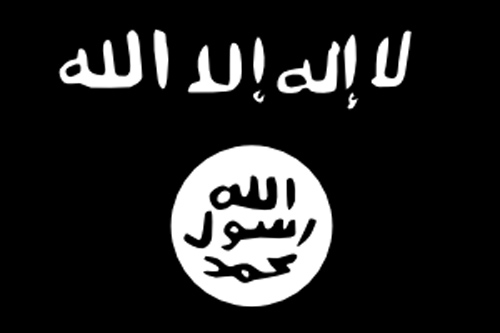Iraqi troops repel ISIS assault on Mosul
The ISIS killed 18 security personnel during a massed assault on the northern Iraqi city. ISIS fighters also briefly seized control of Anbar University in Ramadi.
The ISIS killed 18 security personnel during a massed assault on the northern Iraqi city. ISIS fighters also briefly seized control of Anbar University in Ramadi.
A top sharia official in the Al Nusrah Front, al Qaeda’s official branch in Syria, says that a suicide bomber who recently took part in a coordinated assault was known as Abu Hurayra al Amriki, or Abu Hurayra “the American.” The bomber’s identity has not been confirmed by US officials.
Two Somalis, a man and a woman, detonated their bombs at a restaurant in Djibouti known to be frequented by Western troops.
The Diyala Division praised 26 suicide bombers, including foreign fighters from Tunisia, Libya, Egypt, Saudi Arabia, Iran, Tajikistan, Chechnya, and Denmark.
The Taliban continue to use the tactics of the suicide assault and the lone suicide bomber to strike at the Afghan government and military.
Last night’s attack was the second Taliban suicide assault in Afghanistan in a day. The Taliban have prioritized attacks against hotels in Kabul.
Yemeni security services suspect that al Qaeda was behind a suicide attack at the military intelligence headquarters in Lahj province.
Of the 30 suicide bombers who were identified, the noms de guerre of 24 of them indicate that they were from Africa, Asia, the Middle East, and Europe.
Al Qaeda’s affiliate in Somalia has launched three major suicide attacks and assaults in the Somali capital since Feb. 14.
A photo showing a British suicide bomber and father of three embracing children at a Syrian refugee camp just months before he detonated in an attack underscores the perversity of the Islamist tactic.
Abdul Waheed Majeed, who is thought to be the first British suicide bomber in Syria, is seen in a video dedicated to Al Nusrah Front commander Saifullah al Shishani, a Chechen recently killed in Aleppo.
The attack was likely executed by the Kabul Attack Network, the jihadist alliance that pools its resources to attack Coalition and Afghan targets in and around the capital.

The commanders of the 7th Division and the 28th Brigade were among those killed in a triple suicide attack in western Iraq. Maps highlight al Qaeda’s resurgence in Iraq.
On its newly established Twitter account, AQAP also criticized Yemeni soldiers for fighting alongside US forces and said the military is ignoring the fight against Shia Houthi rebels in the north.
Yesterday’s suicide attack was preceded by a large Shabaab military rally in a town nearby.
The ISIS has not had difficulty in recruiting and deploying suicide bombers to conduct complex assaults in either Iraq or Syria.
The Islamic Movement of Uzbekistan remains active against Coalition forces in northern Afghanistan.
The Salafi jihadist group has claimed the Oct. 7 suicide attack against the South Sinai Security Directorate in el Tor, which is at least the second suicide bombing it has carried out.
The Taliban claimed credit for a double suicide attack in Zhari district in Kandahar, the cradle of the movement.
A Sudanese man led the team, which also included a Kenyan and a Somali.
Two suicide car bombings in the Sinai Peninsula targeting Egyptian security personnel left at least six people dead and over a dozen wounded. No group has claimed responsibility for the attack, but officials suspect Ansar Jerusalem is responsible.
The fighting forced the closure of the Torkham-Jalalabad road in Nangarhar, a key route from Afghanistan that is used to ferry NATO supplies from Pakistan. Dozens of trucks carrying fuel and supplies for NATO forces were destroyed.
Four senior police officials are said to be among the 30 people killed in the suicide attack.
In one attack in Idlib, al Qaeda’s affiliate in Syria claimed that “2,000 fully-equipped mujahideen” from eight different “brigades” fielded “8 tanks, a BMP armored vehicle,” and an assortment of mortars, rockets, machine guns, and other heavy weapons to overrun Syrian military forces. Free Syrian Army units participated in the attack.
At least 30 “hardcore militants” have been freed in a complex suicide assault on a prison in Dera Ismail Khan. The attack was likely carried out by the Taliban and Islamic Movement of Uzbekistan’s newly-formed Ansar al Aseer.
 The Islamic State of Iraq and the Levant attacked prisons in Abu Ghraib and Taji. More than 500 al Qaeda operatives and leaders escaped from Abu Ghraib, while the assault in Taji was repelled.
The Islamic State of Iraq and the Levant attacked prisons in Abu Ghraib and Taji. More than 500 al Qaeda operatives and leaders escaped from Abu Ghraib, while the assault in Taji was repelled.
In Uruzgan, a suicide bomber wearing a police uniform detonated at a dining facility, killing 12 policemen. In Kandahar, a suicide bomber killed a border police commander.
In the past 16 days, al Qaeda in Iraq has executed 14 suicide attacks; several have targeted Shia mosques.
Today’s suicide attack is the third in the Syrian capital this month. It is unclear if the bomber targeted Christians or a pro-Assad militia.
The suicide attack is the second of its kind in the capital in two days. Up to 16 employees of the court were killed when a suicide bomber targeted buses transporting workers.